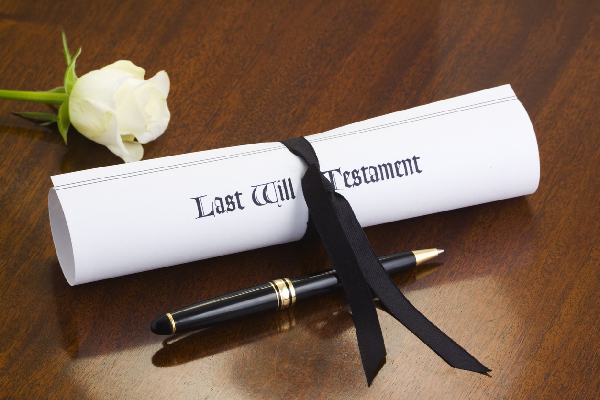
When starting the estate planning process, you may find yourself feeling unsure where to start. What do you need to know in order to ensure proper handling? Even something as seemingly simple as creating a will can lead to a great deal of confusion. You are not alone then if you feel overwhelmed by the estate planning process. Here is a look at answers to the most frequently asked questions about wills.
What Is a Will?
While most people know that wills help to name heirs and distribute assets in the event of one's death, you may find yourself wondering what exactly a will is. Essentially, a will is a legally binding document that sets an individual's wishes about asset distribution. A person who makes a will is referred to as a testator. In their will, a testator outlines their property, assets, debts, and distribution. Recipients of assets in a will (called beneficiaries) often include spouses, children, grandchildren, and charitable organizations.
A will is often part of a larger estate plan, as testators will also often include documents in their estate plan that name guardians for minor children and that provide healthcare directives on how they want to be cared for should they become incapacitated. If someone dies without a will or any kind of estate plan in place, this is called dying intestate. When someone dies intestate, their assets are distributed in accordance with their state's intestacy laws. A will then plays a key role in your estate plan by ensuring that you have a say in how your assets are divided.
What If I Change My Mind?
Preparing a will tends to be overwhelming. You have to choose beneficiaries for your estate and decide how to distribute your assets. Many people find themselves wondering if they are making the right decisions, and you may feel particularly uncertain if you are young and still plan on having a family. Fortunately, wills are fairly easy to change or revoke down the road.
Revoking a will is as easy as creating a new will; all you need to do is make sure that your attorney inserts language stating that this will revokes any prior wills. Of course, if your will only requires minor changes, amend or alter it with a codicil. This makes a will a great option if you need to make changes to your estate plan. For example, in the event that you have a child, wills are extremely easy to amend and revoke.
When Do You Update a Will?
Considering it is fairly straightforward to amend or revoke a will, continue to update it throughout your life. The fact is that your circumstances will change over the years, and major life events may require you to update your will. For instance, you may need a new will if you start a business, buy a house, or get a divorce. It is important that you do not forget about your will after creating it, as continued updates will be critical in order to ensure that all of your major assets are covered in your estate plan. For this reason, it is a good idea to re-evaluate your will every 3-5 years.
What Are the Benefits of a Will vs a Trust?

When estate planning, you may find yourself wondering what benefits a will provides over a trust. While you have likely heard that trusts are often a better option as they can help to keep your estate out of probate, not everyone needs a trust. The fact is that if you do not own property or any major assets, a will may be enough. In cases where someone has a simple estate, wills are often preferred. However, depending on the complexity of your estate, you may actually benefit from having both a will and a trust. This ensures assets protection.
What Is a Pour-Over Will?
Even if you choose to have a trust as your primary estate planning document, you may hear people suggest that you also include a pour-over will in your estate plan. Yet, you may find yourself wondering what a pour-over will is. Ultimately, while a trust can be preferable, it is not always feasible to transfer all of your assets into your trust. A pour-over will is then an essential component of any estate plan that includes a trust.
A pour-over directs the executor of your will to "pour over" any assets not included in your trust. While pour-over wills still have to pass through probate, they ensure that all of your assets end up in your trust upon your death.
How Do I Know If a Will is Right for Me?
Wills are one of the most common estate planning documents, as they are simple to create and easy to change. However, the fact is that they are not for everyone. People with large estates and/or those who worry about the probate process may find a living trust to be a better primary estate planning option.
Yet, you may find yourself wondering which estate planning option is right for you. Ultimately, work with an estate planning attorney to discuss your unique needs to determine what options work best for you.
Contact us to learn more about your estate planning options as well as to find out how we can help guide you through the estate planning process.
For more information please request a copy of our Legal Services Schedule (PDF format).
![]()